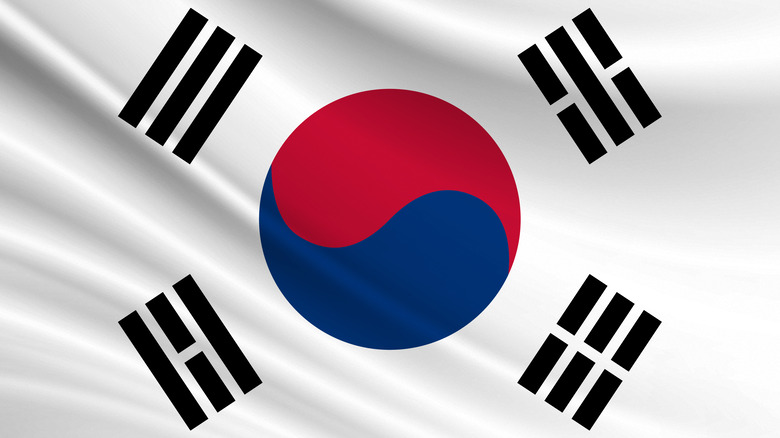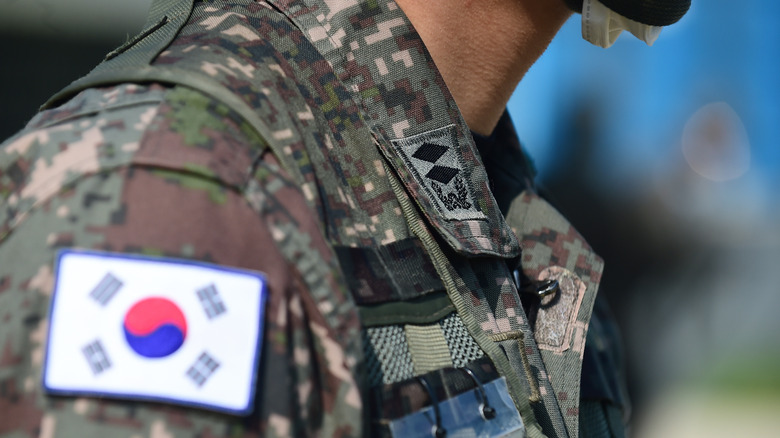The Alternative To Conscription For South Korea's Conscientious Objectors Can Be Likened To Jail
South Korea has become a cultural epicenter in the 21st century. Apart from being a hub for innovative technology spearheaded by globally recognized companies like Samsung Electronics, Hyundai Motor, and LG Electronics, South Koreans have found immense success in the entertainment industry. "Squid Game" hit the top spot on Netflix in 2021 with a cast comprised of South Korean actors. However, perhaps the biggest export of South Korean culture is K-pop. Groups from this genre include Blackpink, Monsta X, and of course, BTS. BTS has 25 Guinness World Records to their name and two Grammy nominations (as of 2022, via the Recording Academy).
In June of 2022, BTS announced that their group would take a break, allowing members to pursue other projects and explore their "identity" (per the BBC). However, this break has grown to include the mandatory military service demanded of all able-bodied South Korean men. On October 17, 2022, BTS' record label HYBE shared a Twitter post stating that the group would begin enlistment, starting with eldest member Kim Seok-jin, with plans to reconvene as seven in 2025. If even global superstars like BTS can't avoid military service, who can?
Conscientious objectors used to be treated as criminals in South Korea
Britannica defines a conscientious objector as someone who "opposes bearing arms or who objects to any type of military training and service." Some choose this stance due to religious, political, or philosophical beliefs. In multiple instances throughout history, people have been able to exempt themselves from military service on these bases. For example, Americans during World War II had to align themselves with a pacifist religion to avoid service. Conscientious objectors (and all others who attempt to avoid mandatory military service) still sometimes find themselves in legal trouble, as Muhammad Ali once did.
Kim Hye-min, a Jehovah's Witness, refused to serve in South Korea's military in 2016. The supreme court let him go and ruled that conscientious objectors were not criminals who should be sent to prison as they so often were. The South Korean government created alternatives for military conscription as a compromise. However, the alternative is not much better from actual jail time. Under the new laws, objectors must work in the country's prisons, doing anything from laundry to administrative jobs (per TIME).
Military service is in South Korea's constitution
According to Amnesty International, South Koreans who refuse military service must work in prisons for 36 months despite the fact that the mandatory military service length is only 18 months. Jihyun Yoon, director of Amnesty International Korea, stated, "Instead of being presented with a genuine alternative to fulfill their service requirements, conscientious objectors are effectively given an alternative punishment." Countries with compulsory military service are expected to offer civilian alternatives under international law. Yoon does not believe that South Korea's solution complies with these standards.
Kim Hye-min did not agree with South Korea's alternative service options either. He again refused service. In September 2022, TIME reported that there were around 900 men working in prisons to fulfill their military requirements. The South Korean constitution includes military service as "one of the five primary duties of a citizen" and holds it equal to paying taxes. It seems that South Korea's citizens are between a rock and a hard place as they either suit up alongside BTS, or work in prisons.


